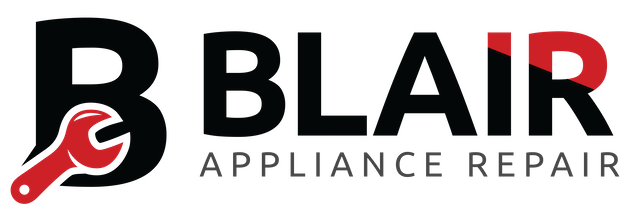Appliance Safety Tips
The appliances inside of your house make your life much less stressful, but when you operate household appliances the wrong way, they might pose significant health risks. You should protect your appliances and be sure they don’t become dangers by adhering to these appliance safety recommendations from Blair Appliance Repair.
The professional tips in this article help prevent fires and injuries related to broken appliances. However, hazards could still occur. If an appliance breaks or begins to malfunction and becomes a danger, hire a professional appliance repair CITY.
Install GFCI Outlets in Wet Locations
Kitchens, laundry rooms, bathrooms, basements, outdoor areas and garages can be susceptible to possible moisture or water. Of course, electricity and moisture don’t mix, so electrical cords and wires should be plugged into ground-fault circuit interrupters (GFCIs).
This can prevent electrocution by tripping the circuit when any interruptions in power are detected.
If you do not currently have GFCI outlets installed in damp rooms inside of your home, now is the time to install them or call an electrician in CITY. Once that is done, for even more safety measures, you will want to heed the warnings of manufacturer appliance manuals that note that they are not for outdoor use.
Wires, Electronics & Outlets Away From Water
Several appliances are specially built for the outdoors, such as gas and charcoal grills. If you make us of electrical appliances outdoors – including refrigerators, dishwashers, freezers and ice makers, power tools and more – be sure that all of the cords and outlets are not wet. Using weatherproof electronics can help with this, combined with GFCI outlets with gaskets that are water-tight.
Extension Cords are Only a Momentary Answer
An extension cord poses several noticeable risks, this includes:
The likelihood of a loose connection that can cause sparks and cause a fire.
The possibility of power inconsistencies that could break the appliance.
Increased vulnerability to moisture penetration that could lead to electrocution.
The likelihood of wires overheating and becoming a fire hazard when an inadequate extension cord is used for a high-power appliance.
When deciding on an extension cord for short-term use, ensure that it is the appropriate gauge for the appliance in question. The lower the gauge, the larger the cord size. For example, a basic extension cord for a radio could have a 16-gauge cord while a big cord for a air conditioner uses a 12-gauge wire.
The length is also important. The longer the cord is, the more power is gone enroute, a phenomenon known as voltage drop. Short cords are good for power tools and outdoor equipment.
Always Read the Operating Manual for Any Appliance You Purchase
It’s easy to guess that you know how to operate your brand new appliance without consulting the manual, but consulting the manufacturer guidelines is important for a lot of reasons:
You will want to find out if your home’s electrical wiring is sufficient to support the appliance. You may have to install a new circuit to stop overloading any current ones.
You learn more about advanced features you wouldn’t have otherwise known.
You learn whether the new appliance is safe for outdoor areas or not.
You do not have the frustration that can sometimes come from attempting to use a home appliance with no instructions!
Unplug Small Appliances in Your Home if You Aren’t Using Them
You can reduce unnecessary energy consumption by unplugging appliances when you are not operating them. This is because small appliances often include LED indicators, clocks and other features standby mode.
Unplug monitors, TVs, modems, printers, routers, video game consoles, phone chargers and more to cut back on wasteful energy use. But remember, it’s alright to keep DVRs and similar electronics plugged in to not miss their background features.
For additional tips on ways to use appliances safely, or to schedule a professional appliance repair company, please contact Blair Appliance Repair. Our repairmen can repair all common home appliances!
OTHER RESOURCES:
Appliance Repair Cost
DIY Appliance Repair Tips
Repair or Replace Appliances
Refrigerator Parts
Copyright ©2024 Blair Appliance Repair
